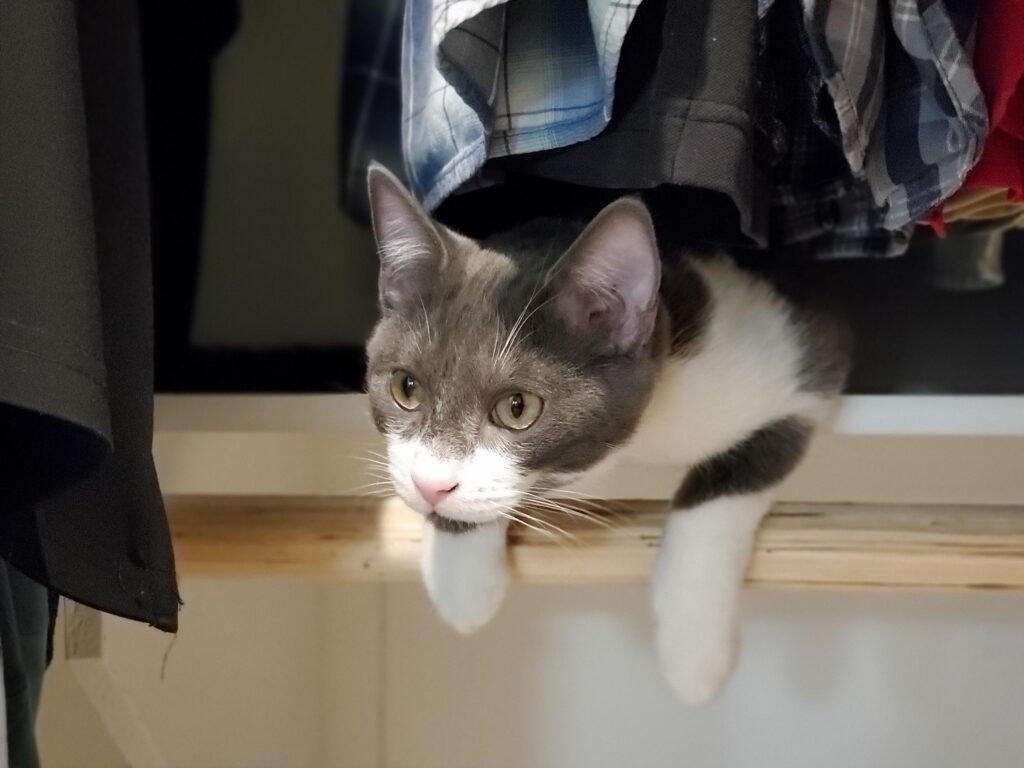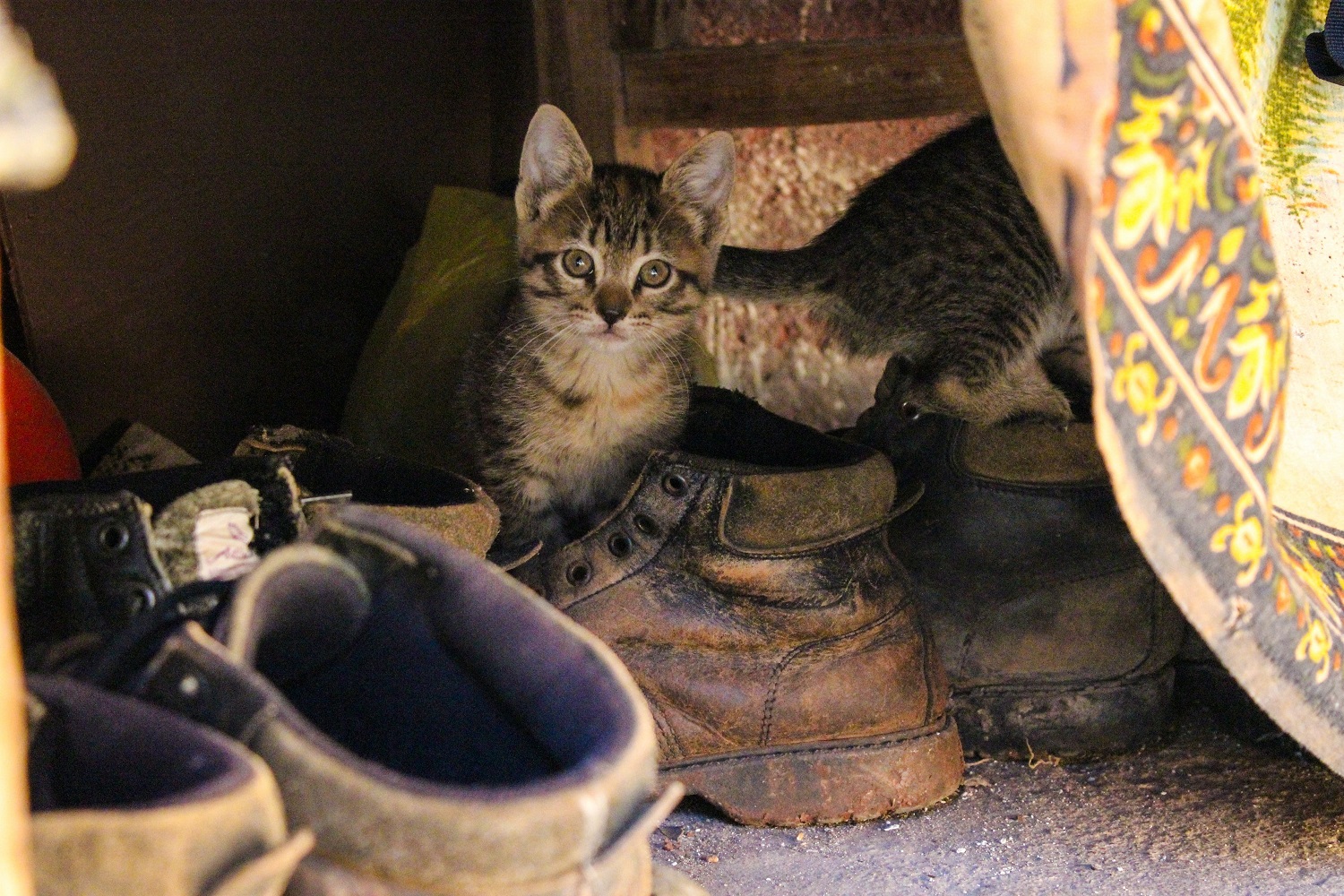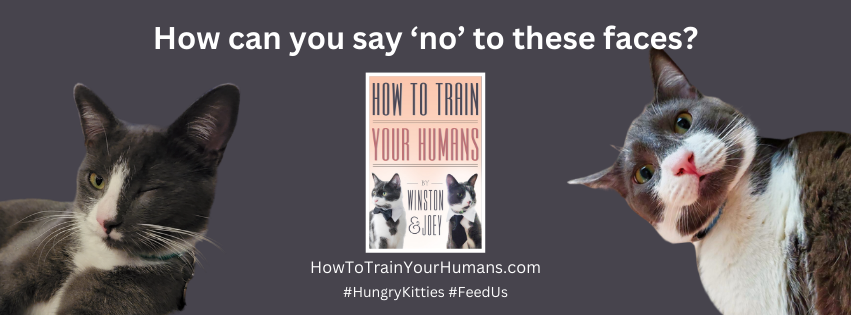You walk into the bedroom, call your cat’s name, and nothing happens. You peek under the bed, behind the couch, and finally find them curled up in the back of your closet like they are trying to avoid jury duty.
Before you assume something is wrong, take a breath. Cats hide in closets for a lot of very normal reasons. From anxiety and overstimulation to temperature and territory, your cat may be retreating to their personal fortress for comfort, rest, or recovery.
Closet hiding may look mysterious, but it is often your cat’s way of saying, “I need a minute.” Let’s break down why it happens, when it is normal, and how to tell if it is something more serious.
Hiding Is Part of Natural Cat Behavior
In the wild, cats are both predators and prey. That dual role makes them cautious and keenly aware of their surroundings. Even the most confident house cat still has the instinct to retreat to a safe, enclosed space when they feel unsure, overstimulated, or threatened.
Closets are quiet, dark, and typically undisturbed. That makes them an ideal refuge for cats looking for peace and privacy.
While some cats may nap out in the open, others prefer small, enclosed areas that feel protected from all angles. It is less about being antisocial and more about feeling secure.
Common Reasons Your Cat Is Hiding in the Closet
Closet hiding becomes a favorite behavior for many cats once they realize how perfect it is for uninterrupted naps and silent observation. But it can also be a clue that something else is going on.
1. Stress or anxiety
Changes in the household are a major trigger. New people, new pets, loud noises, or even moving furniture can send your cat into hiding. Closets offer a calm place to decompress and regroup.
2. Illness or injury
Cats are notorious for hiding when they do not feel well. If your cat suddenly starts hiding more than usual, especially with changes in appetite, litter box use, or behavior, a vet check may be necessary.
3. Overstimulation or sensory overload
Visitors, kids, vacuum cleaners, or construction sounds can all make your cat feel overwhelmed. Hiding helps them filter out the chaos and reset their nervous system.
Related read: The Surprising Reason Your Cat Chatters Like a Squirrel.
4. Temperature regulation
Closets may stay warmer in the winter or cooler in the summer. If your cat disappears during weather changes, they may simply be seeking a more comfortable climate.
5. Need for uninterrupted sleep
Cats sleep an average of 12 to 16 hours a day. A quiet closet makes a great hideaway for catching up on rest without the risk of being interrupted by noisy humans or pesky housemates.
6. Curiosity and comfort
Sometimes, it is just a matter of finding a cozy corner that smells like you. Closets often contain familiar scents from your clothes, which can be calming to your cat.
When Closet Hiding Is Normal
For many cats, hiding in the closet is just part of the routine. Some cats are naturally more reclusive and prefer quiet spaces throughout the day.
It is perfectly normal if:
- Your cat hides occasionally but still eats, drinks, and uses the litter box
- They come out at night to socialize or explore
- Hiding increases during temporary disruptions like guests or loud noises
- They seem relaxed and content while hiding
This is your cat’s version of self-care. Respecting their need for solitude helps build trust and shows them they are safe in your home.
When to Be Concerned
Not all hiding is harmless. If your cat suddenly becomes withdrawn or starts hiding more than usual, it could signal a health or behavioral issue.
Watch for red flags like:
- Not eating or drinking
- Skipping the litter box
- Limping or difficulty moving
- Excessive grooming or signs of pain
- Hiding constantly and refusing to come out
Any combination of these signs warrants a vet visit. Cats hide discomfort well, and increased hiding can be one of the few visible symptoms of illness or injury.

Oh, the thrill of hiding in the closet! Shadows lurking around every corner, strange yet fascinating scents, and the unsuspecting prey (AKA that dangling sweater) just waiting for me to pounce! I’ve got the perfect vantage point to stalk my prey, be it a stray sock or a tantalizing shoelace. The darkness, the stealth, the thrill of the chase – it’s what being a kitten is all about! And to think, Mom and Dad think I’m just playing. Ha! Little do they know, I’m honing my skills as a fearsome predator, ready to pounce at a moment’s notice. #ClosetHunter #BornToPounce #SneakyKitty
Joey
How to Help Your Cat Feel Safe and Supported
If your cat is spending more time in the closet than usual, there are a few gentle ways you can support them without invading their space.
Keep the closet accessible and safe
If this is their preferred hiding spot, make sure there are no dangling cords, sharp objects, or loose items that could fall and scare them. Add a soft towel or blanket to make it more comfortable.
Avoid forcing them out
Dragging a cat out of their hiding spot rarely ends well. Let them emerge on their own, and reward them with affection or treats when they do.
Offer alternative safe spaces
Try adding covered beds, boxes, or cat caves in quieter parts of your home. Giving your cat a variety of hiding spots helps reduce their reliance on just one location.
Reduce household stressors
If possible, lower noise levels, maintain consistent routines, and give your cat a calm environment. Even small changes can help them feel more secure.
Create positive associations
Spend time near the hiding spot without trying to interact. Read a book, sit quietly, or place a favorite toy nearby. Let your cat observe you and decide when they are ready to engage.
Final Thoughts: Hiding Is Not Always a Problem, but It Is Always a Message
Closet hiding is a natural behavior for cats, especially when they need a break from the world. It is a sign of trust when they choose your closet, your scent, and your space as their sanctuary.
If your cat is healthy, eating well, and generally behaving normally, let them enjoy their hideaway without worry. If the hiding is sudden, prolonged, or paired with other symptoms, a little investigation may be in order.
At the end of the day, your cat is not being dramatic or distant. They are doing what cats do best: finding the safest place to be themselves.
Sources:
Understanding Hiding Behavior in Cats https://www.icatcare.org/advice/why-does-my-cat-hide
Cat Stress and Anxiety Signs https://www.humanesociety.org/resources/cats-and-stress
Common Feline Behaviors https://vcahospitals.com/know-your-pet/hiding-behavior-in-cats
When to Worry About Cat Hiding https://www.petmd.com/cat/behavior/why-do-cats-hide
Recent Posts
Explore why cats sleep so much, including the evolutionary reasons and the health benefits they derive from their extensive sleep patterns.
Explore the causes of cat dandruff, its implications, and effective ways to deal with it so your feline friend remains happy and healthy.


